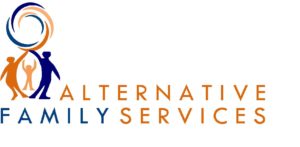Understanding AFS’s Intensive Family Preservation Services
Here at AFS, we have been increasingly focused on providing intensive family presentation services in addition to and alongside the other foster care and child welfare-related services and supports offered. In this blog post, we will dive into what this entails.

Here at AFS, we have been increasingly focused on providing intensive family presentation services in addition to and alongside the other foster care and child welfare-related services and supports offered.
What are Intensive Family Preservation Services (IFPS)?
Broadly speaking, IFPS are for kinship and home trials to maintain permanency and decrease reliance on formal support systems.
According to the Child Welfare Information Gateway, “Family preservation services are short-term, family-focused services designed to assist families in crisis by improving parenting and family functioning while keeping children safe.”
So, what does this mean in layman’s terms? Essentially, the idea is to provide intensive services to prevent youth from ever entering the child welfare system. This is accomplished by ensuring that family members have the tools and resources they need to adequately and appropriately care for youth.
What could this look like? For example, a parent or parents are at imminent risk of having their child or children put in an out-of-home placement, for concern potentially around neglect or abuse. Prior to this happening, the parent or parents may instead be offered community resources or enrollment in a parenting skills course at no charge.
The Child Welfare Information Gateway notes that IFPS is different from family support services, which “are community-based services that assist and support parents in their role as caregivers. Family support services promote parental competency and healthy child development by helping parents enhance their strengths and resolve problems that can lead to child maltreatment, developmental delays, and family disruption.”
Th goal of IFPS is to empower families with the skills and support necessary so they may navigate crises without having the families referred to social services. Ultimately, IFPS seeks reduce the number of youth who are entered into the child welfare system.
In 2018, the Family First Prevention Services Act (FFPSA) was enacted into federal law. The FFPSA brought a significant shift in viewing the child welfare system. According to the Child Welfare Information Gateway, the purpose of the FFPSA “was to turn the focus of the child welfare system toward keeping children safely with their families to avoid the trauma that results when children are placed in out-of-home care” and [t]o increase the number of children who can remain safely at home with their families.”
Are IFPS Effective?
Do IFP programs and interventions work? The latest data largely says yes.
In 2020, the U.S. Department of Health and Human Services published a meta-analysis of all research previously published on the topic. That effort found that there “were significant reductions in relative risk (RR) of out-of-home placements in children who received IFPS compared with controls at child level at three, six, 12 and 24 months’ follow-up.” The research team concluded that the “available evidence, at child level, suggests that IFPS are effective in preventing children from entering care up to 24 months after the intervention.”
What Intensive Family Preservation (IFP) Looks Like at AFS
Here at AFS, we aim to support intensive family presentation through the following IFP programming and services:
- Immediate response to youth 24 hours a day, seven days a week, 365 days a year. Responses can include crisis intervention and stabilization, among other services.
- Needs-driven and family-informed solutions support in order to support permanency, all within family and community-based settings.
- Empower clients by educating them about the Child and Family Team (CFT) process and then engaging them in the Child and Family Plan, including around recruiting and encouraging natural and formal support.
- Behavioral interventions and services are based on the existing probation plan using elements of the Integrated Core Practice Model.
- Sustainable interventions promoting independence.
- Connect the client with community resources with guidance from the Family Partner who acts as a liaison.
Interesting in learning more? Say tuned to the AFS blog for more insights, and be sure to follow AFS on social media.
